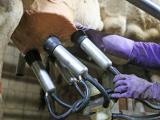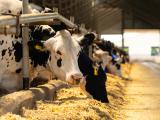Jan 17, 2006 (CIDRAP News) – The Swiss drug company Roche said today it would give another 2 million treatment courses of its anitivral drug oseltamivir (Tamiflu) to the World Health Organization for developing countries to use to fight avian influenza in humans.
The announcement came as representatives from 90 countries and 20 organizations met in Beijing for a conference to raise funds to battle the H5N1 virus.
Roche announced it would give 20 million doses of oseltamivir, enough to treat 2 million people with the recommended regimen of 2 doses a day for 5 days. This is in addition to 3 million treatment courses the company pledged last August for a WHO stockpile to be used to try to snuff out any emerging pandemic.
"While the donation made last year is stored centrally, these additional 2 million treatment courses will be stored as regional stockpiles in locations to be determined by WHO to serve the needs of developing countries," Roche said in a news release.
The two donations, plus a smaller one made in 2004, add up to 5.125 million treatment courses of oseltamivir available to the WHO, the company said.
The donations apparently are based on the standard Tamiflu regimen of 75 mg twice a day for 5 days. However, a report published in December suggested that a higher dosage or longer treatment course may be needed in some cases of H5N1 infection. The report said a Vietnamese girl with H5N1 avian flu died despite receiving prompt treatment with the recommended dosage.
Dr. Margaret Chan, WHO assistant director-general for communicable diseases, said the latest donation would be stored in the WHO's regional offices and distributed as needed to people in countries that can't afford their own oseltamivir stockpiles, according to a New York Times report today.
The previous gift of 3 million treatment courses is to be used only at the site of a spreading human outbreak in an effort to contain or slow it, the Roche statement said.
At the Beijing conference, health officials predicted that governments will have to invest large sums for years to keep avian flu from evolving into a human flu pandemic, according to the Times report.
The story said the 2-day conference is expected to yield promises of $1.2 billion to $1.5 billion to help needy countries fight avian flu. Pledges are expected from the conference's sponsors—the European Union, the World Bank, and China—and other donors, including the United States, the report said.
The funds raised are to be used to implement a 3-year action plan that was put together at an international conference in Geneva in November, according to an Agence France-Presse (AFP) report.
The European Union said last week it would give 80 million euros, or about $100 million, to the effort. Today, Markos Kyprianou, EU commsioner for health and consumer protection, said the EU would increase its pledge to 100 million euros, or about $121 million, the Times reported.
The funds will be used to help the neediest countries improve their ability to detect outbreaks and human cases, officials told AFP.
The Times report said many countries have a severe shortage of veterinarians. For example, it said, Laos has only 69 veterinarians, almost all of whom were trained in other Communist countries before the fall of the Soviet Union.
See also:
Roche news release
http://www.roche.com/med-cor-2006-01-17
Nov 9, 2005, CIDRAP News report on avian flu conference in Geneva




















